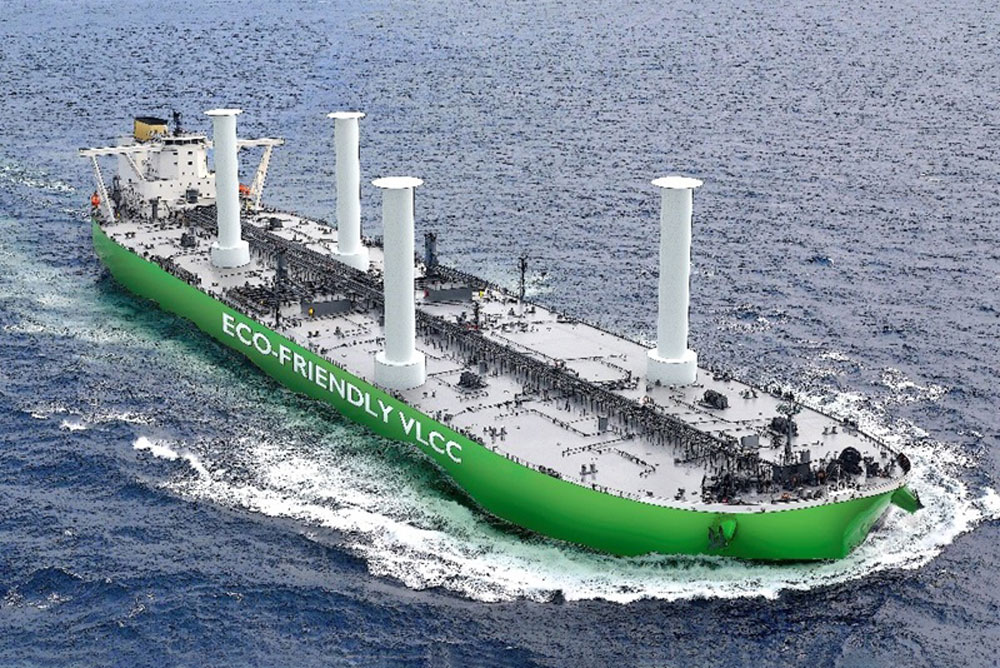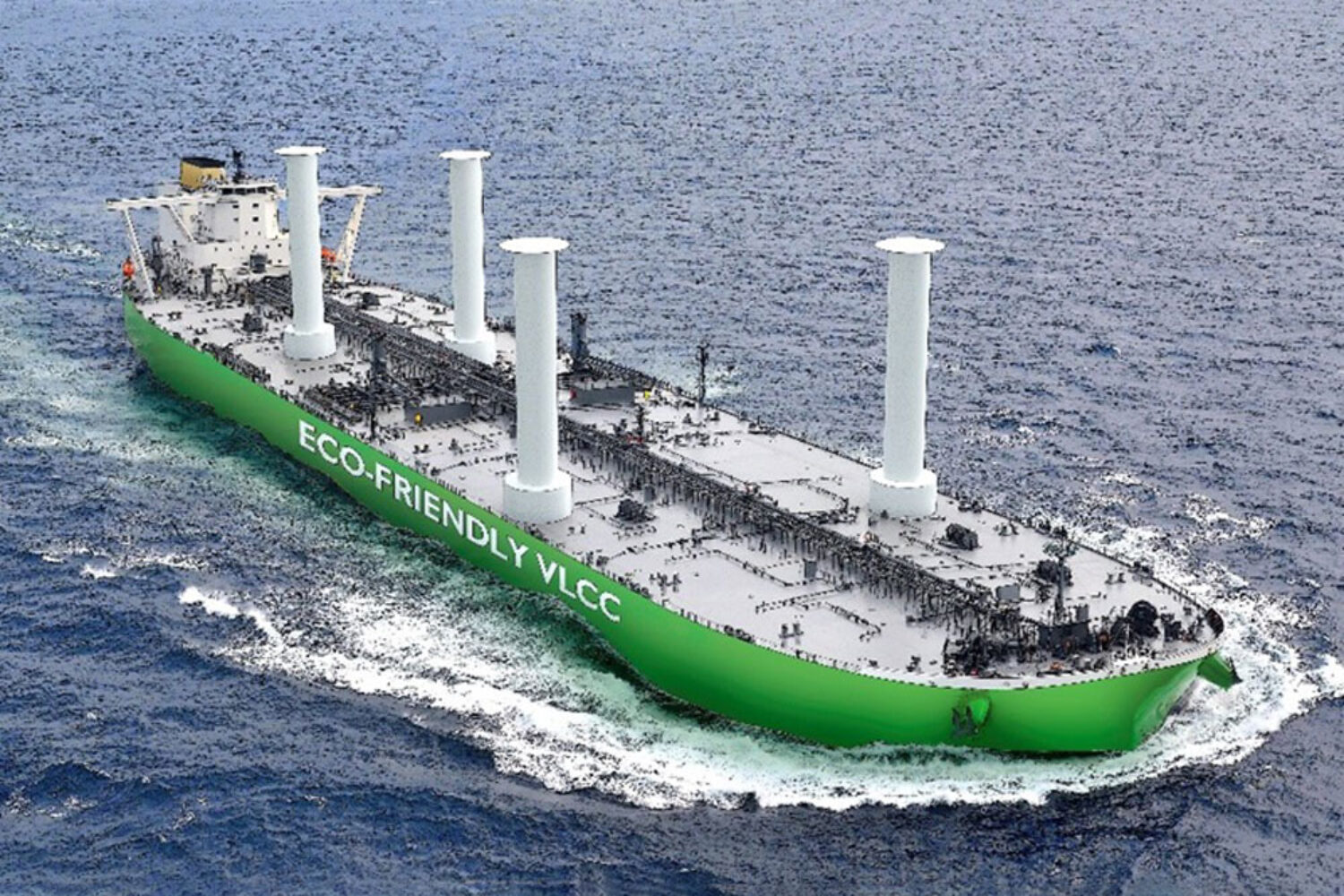Developing environmentally friendly design concepts for VLCCs is the aim of a new consortium that has now been formed in Japan.
In future, Idemitsu Tanker, IINO Kaiun Kaisha (IINO Lines), Nippon Yusen Kabushiki Kaisha(NYK) and Nihon Shipyard want to work on new, low-emission concepts for Very Large Crude Carriers (VLCCs)[ds_preview].
The collaboration will include research and development of design concepts (details, machinery and environmental equipment) for Malacca Max VLCCs. The primary goal is to reduce greenhouse gas emissions.
“VLCCs are essential for Japan”
Decarbonization has become a major global issue, but a stable supply of crude oil remains essential for the energy needs of Japan, which relies on the Middle East for more than 90% of its crude oil imports, the consortium partners say. VLCCs that transport crude oil are therefore vital for Japan’s economy.
To minimize greenhouse gas emissions from transportation, shipping companies are considering, among other things, switching from conventional fuels to next-generation fuels and installing environmentally-friendly equipment, such as carbon capture and storage (CCS) systems. To address these issues, Idemitsu Tanker initiated the formation of this consortium by the four companies to explore optimal solutions beyond the boundaries of the individual companies, it added.
40% less emissions
With the aim of reducing greenhouse gas emissions by at least 40% compared to the past, the consortium aims to pool the expertise of the four companies in their respective fields. The aim is to test and select the effectiveness of next-generation fuels and environmentally friendly equipment. Based on this, the consortium will develop design concepts to build and operate VLCCs.














